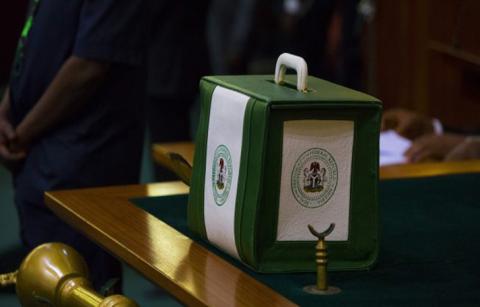
BudgIT made the call on Thursday, after it published its 2022 Federal Government Budget Analysis Consultative Memo titled ‘Leveraging Budget Reforms for Economic Development’.
Civic organisation, BudgIT, has called on the National Assembly to eliminate infractions and corruption loopholes in the 2022 Approved Budget.
BudgIT made the call on Thursday, after it published its 2022 Federal Government Budget Analysis Consultative Memo titled ‘Leveraging Budget Reforms for Economic Development’.

In its preliminary analysis of the 21,108 capital projects in the budget, the body had noted that there were 460 duplicated projects amounting to N378.9billion.
However, in a further analysis, the research team identified other critical causes for concern, infractions and corruption loopholes.
It was discovered that some of the budgets linked to MDAs that do not have the mandate to execute them are directly connected to the leadership of the Legislative arm of government.
An example is the cumulative allocation of N1.45billion to the Nigerian Stored Products Research Institution and Nigerian Centre for Agricultural Mechanisation in Ilorin, Kwara State, to construct the “Femi Gbajabiamila Public Junior Secondary School, Itire Ikate”.
According to the report, “both agencies in Kwara State have no expertise in supervising the construction or staffing of a school in Lagos State when the country has a Federal Ministry of Education.”
It also cited the allocation of N1 billion to the Nigerian Institute of Marine and Oceanography to install street lights in Delta Central Senatorial District, represented by Hon. Ovie Omo-Agege, the deputy Senate President.
It also raised concerns over the timeframe within which the 6,576 capital projects were generated and inserted into the FG budget by legislators.
“BudgIT has valid concerns on whether the Project Design Documents (PDD) were created as required by the 2022 Budget Public Investment Guidelines.”
It added, “A poorly designed and costed public sector project is almost destined to fail ab initio and lead to poor value for money for taxpayers.
“Also, the insertions of these 6,576 projects bloated the budgets of different federal ministries, contributing further to a breach of the budget ceiling safeguards announced by the Budget Office of the Federation on August 19, 2021.”
While speaking on capital budget padding, Gabriel Okeowo, BudgIT’s Country Director, said, “Several projects do not meet the definition for capital expenditures according to the Fiscal Responsibility Act. For example, N5.6billion allocated to over 150 Meetings, Conferences, and Board Meetings was listed as capital expenditures across different MDAs.
“Another case is the N28million allocated to the Federal Ministry of Information & Culture-HQTRS for Quarterly Interaction With Foreign Media/Pr Lobby in its capital budget.”
Okeowo added, “Last week, BudgIT also embarked on consultative engagements with critical institutions and stakeholders in the budget process to galvanise stakeholders into action concerning these infractions.”
BudgIT also called for an amendment of the Fiscal Responsibility Act (FRA) 2007, before the National Assembly, to be given a speedy hearing and corresponding presidential assent empowering the Fiscal Responsibility Commission to enforce fiscal discipline.
“Nigeria currently loses trillions of naira in revenues due to MDAs breaching provisions of the FRA 2007,” the report stated.
The civic body further called on citizens, CSOs, private sector, and the international community to urgently prevail on the National Assembly and Presidency to immediately redress and eliminate the violations in the budget so as to allow the public funds work for all Nigerians and not for a privileged few politicians.
“It is no gainsaying that the National Assembly must demonstrate a stronger commitment to publishing, vetting and appraising the budget proposal from the Executive and their agencies, especially using feedback from the country’s Auditor General to assess allocations to agencies involved in misappropriation, extra-budgetary allocations, and other forms of corruption in the previous years.”